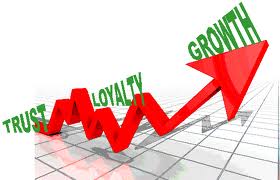Of course you know the answer to that very important question. Don't you? After all, it should be one of your key balanced scorecard measures.
Why? Because if you don't have loyal employees you cannot expect to deliver the best possible customer service or the best customer value, and that has to hurt your business. Indeed, in his book, "The Loyalty Effect", Frederick Reichfield suggests that lack of employee loyalty can stunt performance and productivity by up to 50%.
I don't know what you think, but that certainly seems pretty obvious to me. And that is why I find all the surveys showing declining employee engagement – or if you prefer, increasing employee disengagement – extremely disturbing. After all a disengaged employee cannot be a loyal employee. So if you don't know the answer to the question, you have a serious problem.
That trend is even more frightening when you realise the book was first published in 1996. We appear to have completely failed to heed our own common sense and the lessons in the book. It would seem that Reichfield himself is concerned by this because in 2006 he followed up with another book, "The Ultimate Question."
The blurb on the website for the book claims that it "offers the missing link of the metrics that hold employees accountable to generate loyal customers." It continues that the key is "elevating customer metrics to the same level of rigor and importance as financial metrics like revenue growth or return on equity. The best way to accomplish that? Using one simple question – How likely is it that you would recommend this company to a friend or colleague?"
So, if you don't already have this as a key metric, there is both the justification for and the detail of how to create it. However, to use it properly you must ask the question of your employees. Apart from anything it will save you a fortune in employee opinion surveys! You need to be aware, however, that the answer is a direct reflection on you and your leadership. After all, if your people would not be prepared to recommend the organisation to their relatives, friends and colleagues, it is because they do not trust you enough and you haven't inspired them sufficiently to make it an organisation that they can be proud of.
And, at the risk of sounding like a stuck gramophone record, the easiest way to instil trust and create pride in the organisation and so build loyalty, is to make the employees co-owners of the business. The power of the pride and the pride of the power of ownership is the primary force that underpinned the phenomenal success of capitalism. So if you want to create a happy and loyal workforce and engender the performance improvement that you are looking for you need to create a more democratic workplace where your people are driven by a common self-interest to deliver their best. Employee ownership is head and shoulders the best way to do this.
You have no excuse if you fail to recognise this and to do something to make it happen!


I recently came across your blog and have been reading along. I thought I would leave my first comment. I don’t know what to say except that I have enjoyed reading. Nice blog. I will keep visiting this blog very often.
Thank you so much! I don’t really know what to say either, but comments like yours certainly make it worthwhile.
Bay
I agree that it would be disturbing if you got back the results from a survey that you sent out only to find that employee morale was low and that most employees were not very loyal to a company at all. That is why these surveys are so important. It lets you see what areas need extra time and attention. Hopefully then you can fix the problem and things can improve.
You right without a loyal employee you really can give customer possible service.In Helsinki Finland i can say many of the call centers companies has the a lot of loyal employee because of the fact that customer services in that part of Finland has a quality which lead to some business a customer satisfaction.
Excellent post. Thanks for providing with so useful information.
I really appreciate your blog. But the data shown bit surprises me as now Facebook is quietly more popular.
Thank you! You are right; Facebook is certainly a useful tool, and a good way of collating and – more importantly – displaying social proof for your product or service, but it is a snapshot tool of a one time enjoyment and does not monitor ongoing appreciation. And although it can be used as a good measure for assessing how well you are doing this reduces it to (yet another) performance measure without doing anything to actively engender employee engagement.